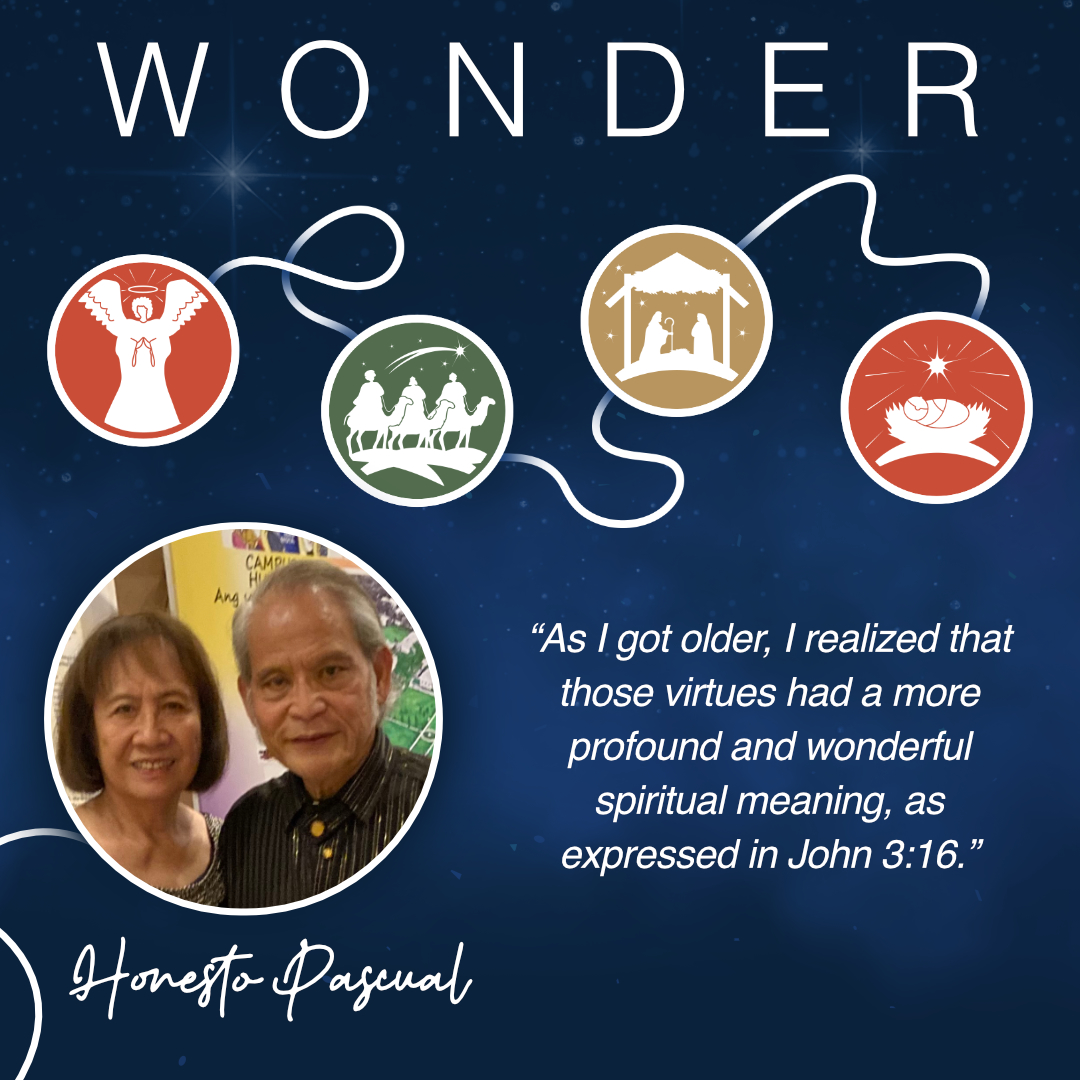I spent my childhood at Philippine Union College where my mother was in the faculty and was concurrently, food service director. We lived on campus in one of the faculty homes. The event of the year at that time was the annual play usually presented by academy students during the Christmas season. In two successive years, “The Other Wiseman” by Henry Van Dyke and “A Christmas Carol” by Charles Dickens were presented. I was a child, ten and eleven years old.
Although wonderful, outstanding, and amazing, the dazzling glitter of costumes and the memorization of lines by novice academy students in their mid-teens did not stand out in my childish mind. Yes, “Bah! Humbug!” was an unforgettable line for two reasons. It was my first encounter with “humbug”, an addition to my vocabulary. Also, its meaning is almost homophonic with the Tagalog word, hambóg, which means approximately the same thing.
What stood out in my young mind, however, was the compassion and generosity of Artaban, the lead character in Van Dyke’s story. These were the same virtues seen in Ebenezer Scrooge, following his transformation in the last stave of Dickens’ story.
They were the same virtues I observed in my mother. I remember the times when, upon her invitation, two sets of siblings stayed with us during different school years. They were self-supporting students. Although our resources were meager, they were given a place to sleep and food. As I got older, I realized that those virtues had a more profound and wonderful spiritual meaning, as expressed in John 3:16, that God’s love for us was so great, that he gave the greatest gift of all, his only son, Jesus.
Artaban was one of four magi who followed the star on their way to visit the Royal King, Baby Jesus. Unfortunately, Artaban was late because, on his way to meet the three other magi, he stopped to aid a dying man. The three magi, bearing their gifts, continued their journey to Bethlehem without him. So, he traveled alone.
He also had gifts: a sapphire, a ruby, and a “pearl of great price.” For him to complete the long journey, he had to sell one of his gifts to purchase the necessary camels and supplies. He made it to Bethlehem. But Joseph, Mary, and Baby Jesus were gone. They had fled to Egypt to escape Herod’s order to slay all male children two years and below. Artaban journeyed to Egypt and other countries in search of Jesus. While doing so, he spent his second treasure as he rendered charitable service to anyone who needed help.
He remained a pilgrim for the next thirty-three years and made it in time to Jerusalem for the crucifixion. There he spent his last treasure to ransom a young woman who was being sold into slavery. He did not make it to Golgotha because he sustained a fatal head injury from a falling tile. As he was dying, no doubt feeling like a failure in his quest for Jesus, he heard the words found in Matthew 25:40, “Inasmuch as you did it to the least of my children, you did it to me.”
Ebenezer Scrooge, the main character in Dickens’ Christmas story, was a wretched miser with no compassion for his family, not to mention his employee and his family. In a dream on Christmas Eve, he saw Jacob Marley, his business partner who died seven years before, “entwined by heavy chains and money boxes forged during a lifetime of greed and selfishness.” Marley warned Scrooge that his only chance to avoid a worse fate was to listen to three ghosts who would visit him.
The Ghost of Christmas Past showed him scenes from his difficult boyhood and painful past experiences in adulthood. The Ghost of Christmas Present showed him scenes of families enjoying Christmas celebrations together. “Before disappearing, the spirit shows Scrooge two hideous, emaciated children named Ignorance and Want. He tells Scrooge to beware the former above all and mocks Scrooge’s concern for their welfare.”
The Ghost of Christmas Yet to Come showed him a future Christmas Day. He saw the funeral of a man whom everyone disliked. No one seemed to mourn his death. Finally, he saw a neglected grave with his name on the tombstone. Sobbing, he pledged to mend his ways.
Scrooge woke up on Christmas Day a changed man. He donated a large sum to a charity he previously refused to help. He sent a large turkey to his employee, Bob Cratchitt, and his family for their Christmas dinner. He spent the afternoon with Fred, his nephew, at their family Christmas party.
The day after Christmas, he increased Cratchii’s wages and became a father figure to Tiny Tim, his ill son. “From then on Scrooge treats everyone with kindness, generosity, and compassion, embodying the spirit of Christmas.”
Two stories, one wonderful lesson. Artaban died “in a calm radiance of wonder and joy. His treasures were accepted, and the Other Wise Man found his King.” As a changed man, Scrooge, the ex-miser, began treating everyone with generosity and compassion. That one lesson was hatched in childhood. Its spiritual implication was wonderfully understood when I reached adulthood.
[The synopsis of both stories and quoted phrases are from Wikipedia.]
Honesto C. Pascual, who retired from medical practice two years ago, is currently proofreading and editing “Psychiatry and the Prismatic Brain”, a 550-page book written by a classmate, Psychiatry Professor [Ret] V. S. Cabuquit.

